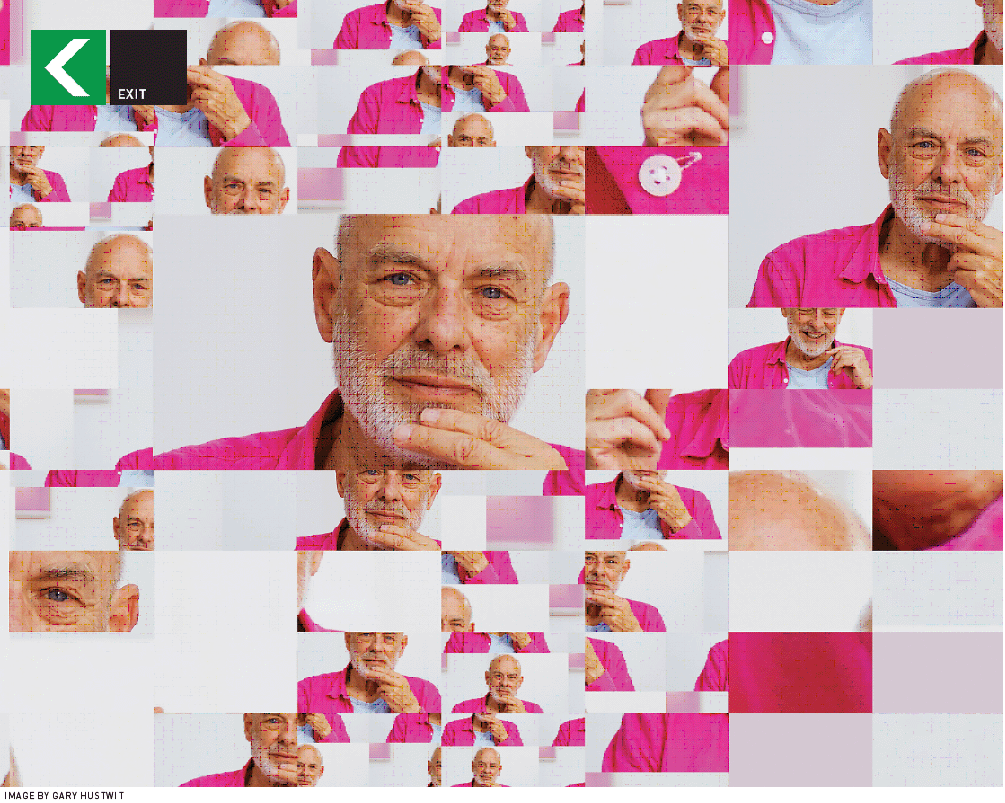Authors:
Gary Hustwit
Contributor: Gary Hustwit
Curators: Scott Minneman and Renato Verdugo
Unlike the definitive "director's cut," Gary Hustwit's documentary about Brian Eno heads in the other direction, embodying and honoring Eno's role as a generative media pioneer. Every roughly 90-minute screening of Eno is different, drawing on more than 30 hours of interview footage and augmented by 500 hours of Eno's personal archive of studio sessions, performances, and appearances. This vast database of source material is segmented and organized for insertion at randomized, yet appropriate, locations by the playback algorithm Brain One (written by Brendan Dawes, with a custom controller console by Teenage Engineering). This proprietary generative software blends a narrative structure needed to convey an overall impression while accommodating highly-diverse outtakes from the archive, with the combinatorics yielding a staggering number of possible films. The results portray the many facets of Eno's illustrious career—musician, producer, thinker, visual artist—in a way that no single documentary ever could.
Gary Hustwit is a celebrated filmmaker who employs both traditional and cutting-edge filmmaking techniques to create documentaries on design, culture, and innovation that examine the role design plays in shaping human experience. Hustwit's films display his ability to identify, convey, and intertwine threads of topics that initially might seem too mundane to deserve scrutiny, like the genesis and development of the Helvetica font (Helvetica [2007]). Objectified (2009), Urbanized (2011), and Rams (2018) are among his other masterworks of the design documentary genre. In its premiere at the Venice Biennale, Nothing Can Ever Be the Same transformed the Eno database/archive even further, into a never-ending screening.
Copyright 2025 held by owners/authors
The Digital Library is published by the Association for Computing Machinery. Copyright © 2025 ACM, Inc.









Post Comment
No Comments Found